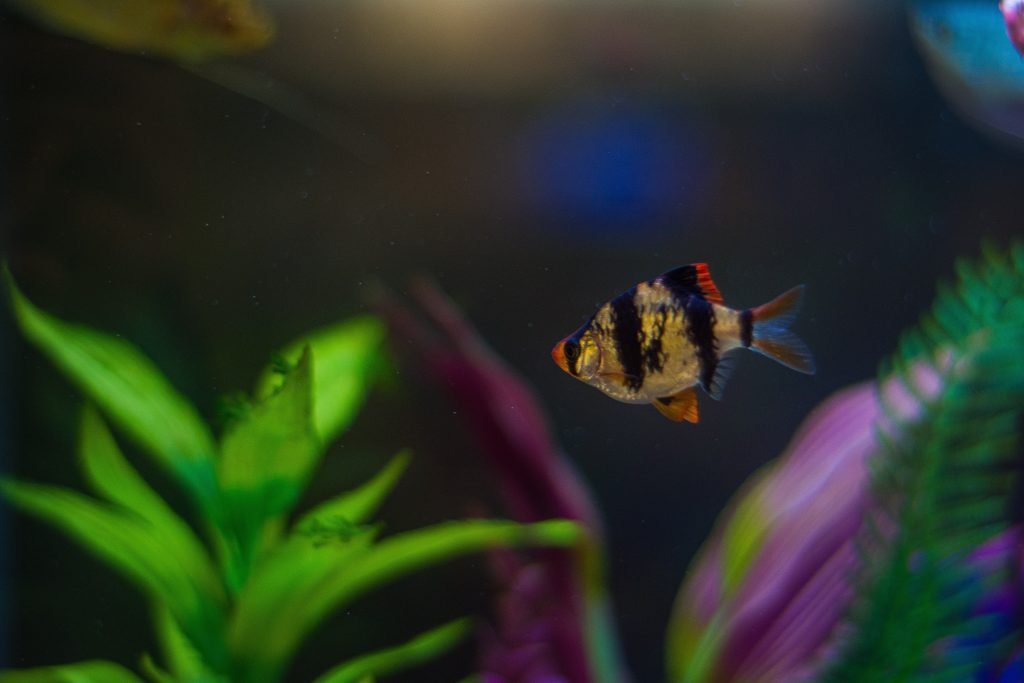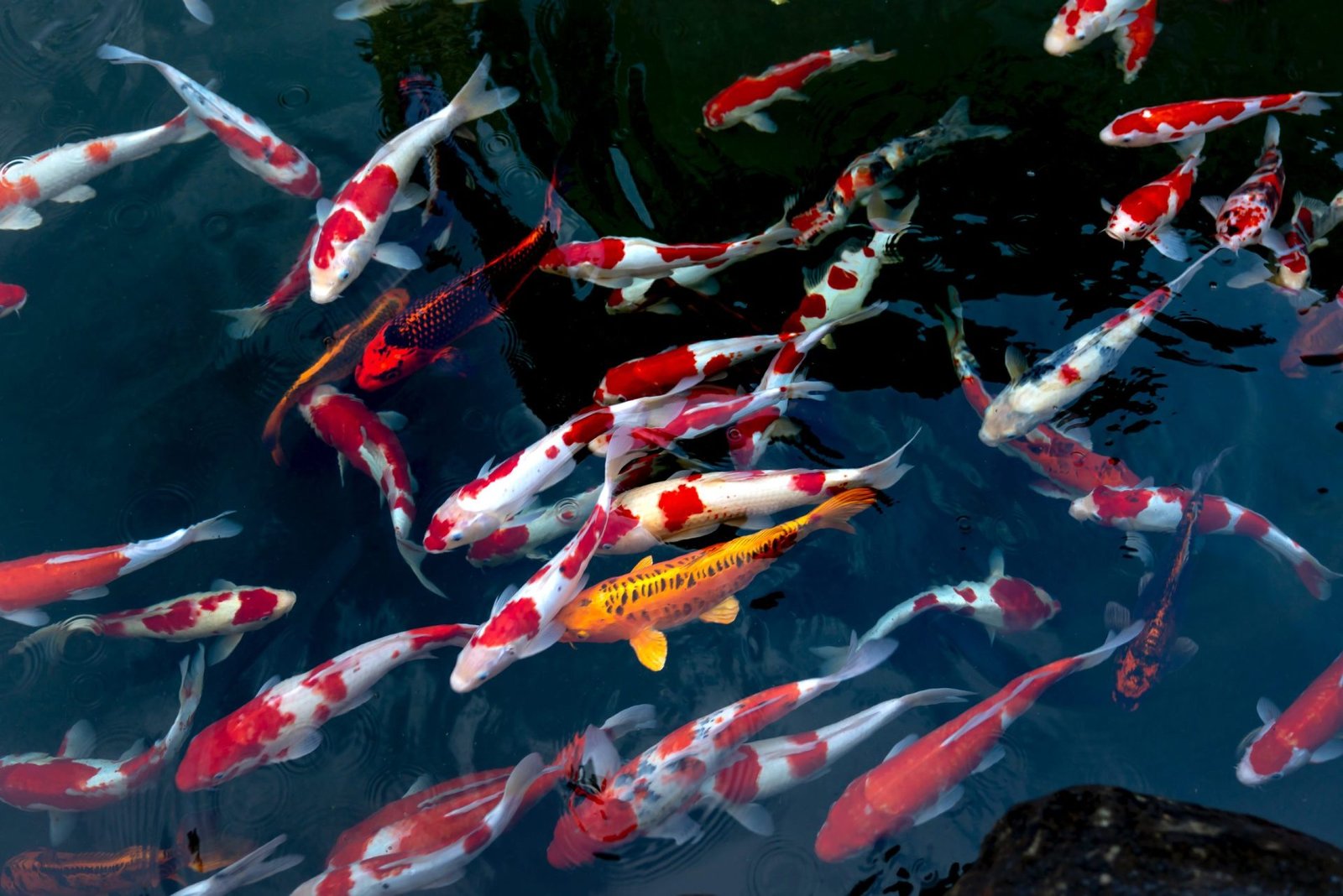It is common for fish to eat their own eggs, either by accident or intentionally. This behavior, known as oophagy, can occur for a variety of reasons and we will discuss in detail.
Many people wonder if fish eat their own eggs when they are released during breeding season. In this article, we will discuss whether fish consume their own eggs and how it can affect the survival of fish populations in the wild.
Why do fish eat their eggs and babies?
It’s a common misconception that all fish eat their own eggs and offspring. While some species do, others are devoted parents that protect and care for their young.
let’s explore why some fish eat their eggs and babies, as well as the factors that influence this behavior.
Fishes are animals that live in water, but just like any other animal, they have specific diets that help them survive and reproduce. This brings up the question of whether or not fish eat their own eggs. While this behaviour may be uncommon among certain species, it is certainly possible.
Do fish eat their own eggs? The Short Answer: Yes, Fish Do Eat Their Own Eggs
It is true that some fish species will consume their own eggs, either due to starvation or competition from other fish. This phenomenon is seen in several types of fish, including catfish, killifish, live-bearers (such as guppies and mollies), cichlids and goldfish.
These fish may also cannibalize each other’s eggs if they can get to them first. In addition to eating their own eggs, some species of fish may also scavenge other fishes’ eggs.
Types of Fish That May Eat Their Own Eggs:
There are a certain types of fishes that may consume their own eggs. Some of the examples are cichlids, livebearers, sticklebacks, catfish, killifish, and shiners.
One of the reason is simply that the eggs are a source of nutrition. The females may consume their own eggs if the eggs are not fertilized or if the eggs are diseased or deformed.
This helps to keep the population healthy by eliminating weak or unhealthy individuals.
List of fishes with information that eat their own eggs or babies:
| Fish Name | Origin | Egg Size | Characteristic |
|---|---|---|---|
| Mouthbrooder | Africa | Small | Eats own eggs |
| Livebearer | Americas | Small | Eats own babies |
| Cichlid | Africa | Medium | Eats own eggs |
| Guppy | Americas | Small | Eats own babies |
| Goldfish | Asia | Medium | Eats own eggs |
Some Reasons Why Fish May Eat Their Own Eggs:
Fish may consume their own eggs out of desperation due to hunger or because of an attempt to keep resources scarce. If a group of adult fishes feel there are too many eggs in an area and want to control population growth, they will turn to eating them as a solution.
Another factor that can influence egg-eating behaviour is parental care; some species may not provide adequate protection for their young and the risk of egg predation rises as a result.
Why Fish May Consume Their Own Eggs?
Fish may eat their own eggs for several reasons, such as when food is scarce or when the water quality is poor. Eating the eggs can provide important nutrition to fish during times of hardship and also increase the chances that at least one offspring will survive.
Additionally, some fish have been observed eating the eggs of other species in order to reduce competition for food resources and maintain territory boundaries.
1) Lack Of Food – In cases where there isn’t enough food around for a fish, she may resort to consuming her own clutch of eggs as a way of sustaining herself until more food is available again.
2) Defense Mechanism – When feeling threatened by predators or other competitors for resources, some female fish may instinctively choose to consume their own clutches as a form of self-defense against potential threats.
3) Territoriality – In some cases, territorial disputes between male and female fish can lead to one party trying to consume the other’s clutch of eggs in order assert dominance over the area they share habitat with each other.
Behaviour of Different Fish Species:
While it is not uncommon for fish to eat their own eggs, this behavior varies widely among different species and can be influenced by a variety of factors, including nutrition, hunger, and the need to protect their offspring.
There are some fishes that are much less likely to eat their own eggs. These include many freshwater species such as carp and goldfish. These types of fish tend to guard their nests diligently and are highly protective of their eggs.
Do Clownfish Eat Their Own Eggs?
It is not common for clownfish to eat their own eggs. Clownfish are known to be protective of their eggs and will always defend them against intruders. They will also tend to the eggs by fanning them with their fins to keep them oxygenated and clean.
Once the eggs hatch, the clownfish will continue to protect the young fish as they grow. However, in certain situations, such as if the eggs are diseased, disformed or there is a lack of food, it is possible that a clownfish may eat its own eggs.

Do Goldfish Eat Their Own Babies?
Goldfish are oviparous, meaning they lay eggs rather than giving birth to live young. Therefore, they do not have babies to eat. But It is common for goldfish to eat their own eggs, especially if they are crowded or stressed.

Why Do Guppy Fish Eat Their Babies?
Guppies, like many other livebearers, may eat their own babies. There are several potential reasons why guppies might eat their own babies.
One reason is that it is a means of population control, as the mother fish may eat her own offspring to prevent overcrowding and reduce competition for resources.
Another reason may be a lack of adequate nutrition or if the babies are not developing properly.

It is important to note that not all guppies will exhibit this behavior, and it is generally more common in situations where the fish are kept in suboptimal conditions.
Providing a spacious, clean, and well-maintained environment for your guppies can help reduce the likelihood of them eating their own babies.
Do Molly Fish Eat Their Babies?
Mollies may eat their own babies if they are overcrowded or stressed. Molly fish is a type of fish that give birth to live young rather than laying eggs, and they are known to sometimes eat their own babies as a means of population control.
This behavior is more common in situations where the fish are kept in suboptimal conditions, such as if they are overcrowded or if the water quality is poor.

Effects on Survival Rate:
Consuming one’s own eggs can negatively impact the survival rate of a population due to a decrease in potential offspring. If enough adults consume enough of their own offspring then it could cause a significant reduction in overall population numbers.
Therefore, if you plan on keeping fish in an aquarium, be sure to provide them with adequate food so that they don’t need to resort to eating their own eggs for sustenance.
Hormonal Changes That Lead To Eating Of Own Eggs:
In some cases, hormonal changes can lead to a female fish consuming her own eggs in order to create space for new ones.
During times when the female is about to spawn, her body begins producing hormones that encourage her to protect and defend her clutch of eggs from predators or competitors for resources. But sometimes these hormones can get out of balance, leading the female fish to actually eat her own eggs as part of an instinctive survival response.
How To Prevent Egg Predation:
If you’re raising fish at home and want to ensure that your eggs don’t fall victim to predators like other fish in your tank, there are several methods you can try:
• Ensure that all adults in your aquarium are well fed so they won’t be tempted by the eggs
• Remove any sick or aggressive adults who may pose a threat
• Choose breeds that don’t naturally eat their own eggs (some types of cichlids tend to be more prone than others)
• Provide adequate hiding places for the eggs (plants, caves or substrate)
• Cover the bottom with marbles or pebbles which make it harder for predators to find them
Conclusion
To answer the question “Do fishes eat their own eggs?” The answer depends largely on the particular species involved as well as external environmental factors that influence their behaviour and reproductive cycles.
While it may be unusual for a fish to consume its own eggs under normal circumstances, certain circumstances may lead them do so due various hormonal changes or out of necessity due lack of food or defence against predators or competitors.
In conclusion, yes – some species of fish do eat their own eggs as well as those from other fishes in the same tank or pond. To avoid this problem, it’s important to research appropriate breeding habits for the species you’re keeping at home and implement steps that minimize risk of egg predation by other tank mates.
Recent Posts
What Does Kiviak and Its Eggs Really Taste Like and How Do You Even Eat It?
Kiviak and its eggs taste like fermented blue cheese mixed with oily game meat, wrapped in a punch of ammonia. This dish, found in Greenland, is made by stuffing hundreds of whole auk birds into a...
Are Ethical Concerns in Egg and Chicken Farming Being Ignored?
Egg and chicken farming has raised significant ethical concerns, affecting both the animals involved and the consumers who rely on these products. The conditions in which chickens are raised, their...

